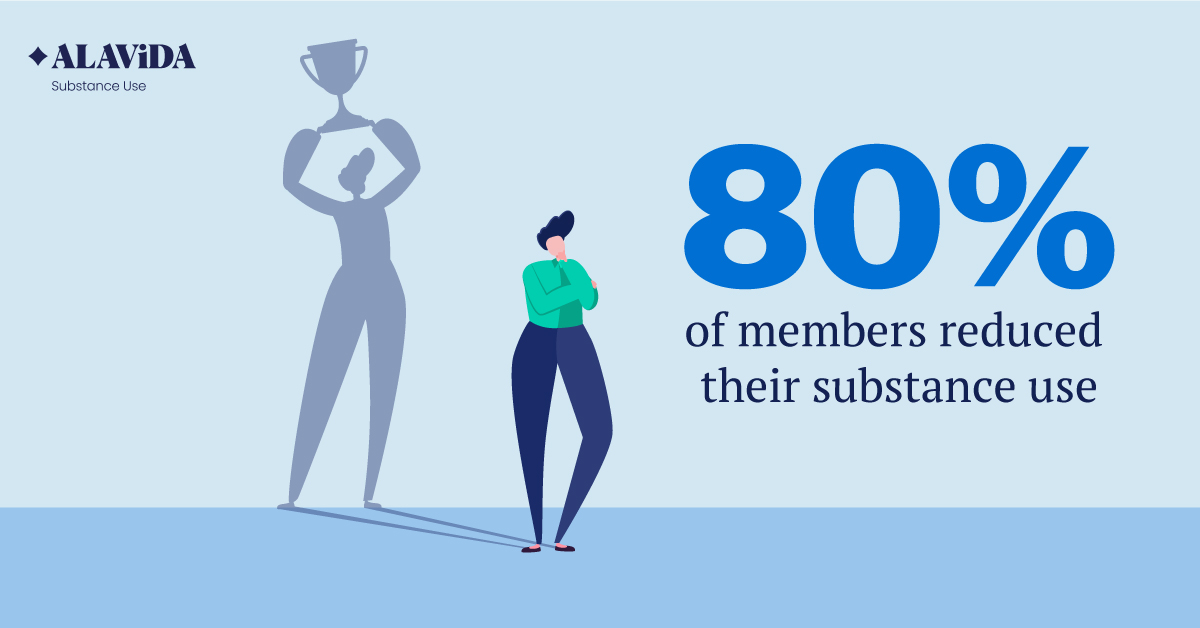What Helps People Change? The Who, What, Why and How of Addiction Care

One of the main questions that has fascinated me as a clinical psychologist is understanding how people change. For so many people, they say that they want to change, but seem to have trouble making the change that they desire. Specifically, I am curious about how people decide to change their relationship with substances. The terminology “changing a relationship” might seem odd, but substance use is by and large a way to manage emotions, particularly negative emotions. Substances become a friend; a way to self-soothe, reduce stress, enhance pleasure, and reduce pain.
When you think about addiction care, what is the first thing that comes to mind? For most people, the first thought that comes to mind is residential treatment or what is commonly known as “rehab.” While inpatient treatments have undoubtedly helped many people, it is not a viable option for most. Contrary to popular belief, people are more interested in options they have autonomy over; options that don’t include taking time off work, travelling to a care provider, or spending heaps of money. So, can people change their relationship with substances without heading off to rehab? The answer to this question is (of course) yes, and in this article, we will show you why.
What helps people change?
We are now in an era of scientific inquiry. This means that we use data to determine whether people are actually improving over time. In the field of addiction care, we know that treatments such as Cognitive Behavioral therapy (CBT), Motivational Interviewing (MI), and Dialectical Behavioral Therapy (DBT) have the most robust research evidence when it comes to stopping or reducing substance use. This makes sense because these treatments provide tangible strategies that people can apply in their lives; strategies to increase motivation, change thought patterns, and better manage uncomfortable emotions.
A secondary component to effective change is having a supportive person on your side. In a world where we are more connected through technology, research shows that we are lonelier than ever. Social media was humanity’s first contact between humans and AI, but it was designed to predict with accuracy the perfect thing to keep you scrolling. Yet, feeling connected, heard, understood, and respected by someone who is non-judgmentally supportive has been shown to be the most potent ingredient in helping people change. This outcome has been demonstrated time and time again. While artificial intelligence (AI) is bringing us into a new age, the human touch is key when it comes to experiencing real empathy, compassion, and connection.
Who helps people change?
We know that therapy, peer support, and loving family/peer relationships are effective in helping people change. An emerging adjunct to these human touch points is the support of a professionally trained coach. In treating depression and anxiety, research has shown that coaching support is as effective as treatment with a licensed therapist1. Adding a human component to virtual CBT decreases drop-out rates, increases engagement, and improves outcomes2,3. Coaches provide many benefits such as orienting to the material, addressing questions or concerns, advising on how to get the most out of the program, teaching and reinforce practical skills, helping navigate difficulties, providing a sense of accountability and responsibility, and being a caring guide so people know they are not alone in their journey.
How do we know that change is happening?
One of the most effective ways to determine whether change is happening is to measure it. In the physical health field, we collect data to inform our decisions about all kinds of behaviors ranging from weight management to cholesterol to sleep. In the field of mental health and addiction, it is quickly becoming best practice to track change over time. The language used to describe this approach includes terms such as measurement-based care (MBC), feedback-informed treatment (FIT), and routine outcome monitoring. All these fancy terms mean collecting data over time to show that change is happening.
People report that using measurement tools helps them gain a sense of control over their symptoms. The use of measurement tools is associated with positive therapeutic outcomes, such as reduced symptoms and improved functioning. The goal of an effective substance use care program should be to amalgamate everything we know is effective in creating change and apply that knowledge to what we are doing, to continue to improve.
People who come to ALAViDA are looking to stop or reduce substance use, but they are also looking to feel better. They want to feel a sense of control over their substance use and to reduce the harm that using substances has caused. Harm can include damaged relationships, being less productive at work, or missing out on important life events. By combining CBT, MI, and DBT strategies, the support of a personalized coach trained in addiction care, and measurement-based tools, we aim to provide people with the most effective tools possible to change their substance use.
Outcomes from ALAViDA show that:
- 80% of people reduce their substance use
- 74% of people see a reduction in the severity of their substance use
- 79% see improved well-being
- 76% of people feel that their overall life functioning has improved
- 77% of people find that they can more easily stop once they have starting using substances
- 66% of people feel like they have more control over their substance use
- Engagement is increased by 58% when working with a coach

Why does this matter?
It matters because you can be confident that change is possible. While change is never easy, any step in the right direction is a positive step. Powering digital resources with support from an actual human can significantly increase your chances of success, while also shortening the time to get you there. Whether you are ready to make a change right now, or you are just in the first stages of thinking about it, ALAViDA can help. At ALAViDA, we provide a wide range of support options to help you change your relationship with alcohol and other substances.
Access the ALAViDA TRAiL.
About the author:
Dr. Terri-Lynn Mackay, C.Psych, is the Mental Health Director of ALAViDA Substance Use, a product of LifeSpeak Inc. She leads a care team who provide members with compassionate, non-judgmental, evidence-based care. In her previous roles, Dr. Mackay served as the Director of Operations for the Canadian mental health pandemic response, the Associate Director of Counselling Services at the University of British Columbia, an Associate Professor at the University of Nevada, Las Vegas, and the Provincial Director of Innovation and Partnerships for the Canadian Mental Health Association. Dr. Mackay holds a PhD in Clinical Psychology and a Master’s degree in Behavioural Neuroscience.
Sources:
1 – Institute of Health Economics (2021). Évaluation économique du programme Retrouver son entrain offert par l’Association canadienne pour la santé mentale, division de la C.-B.
2 – Mohr, David, Cuijpers, Pim et Lehman, Kenneth. (2011). Supportive Accountability: A Model for Providing Human Support to Enhance Adherence to eHealth Interventions. Journal of medical Internet Research. 13(1). DOI :10.2196/jmir.1602.
3- Holländare, F. et coll. (2016). Therapist behaviours in internet-based cognitive behaviour therapy (ICBT) for depressive symptoms. Internet Interventions. 3, p. 1-7. DOI : 10.1016/j.invent.2015.11.002.